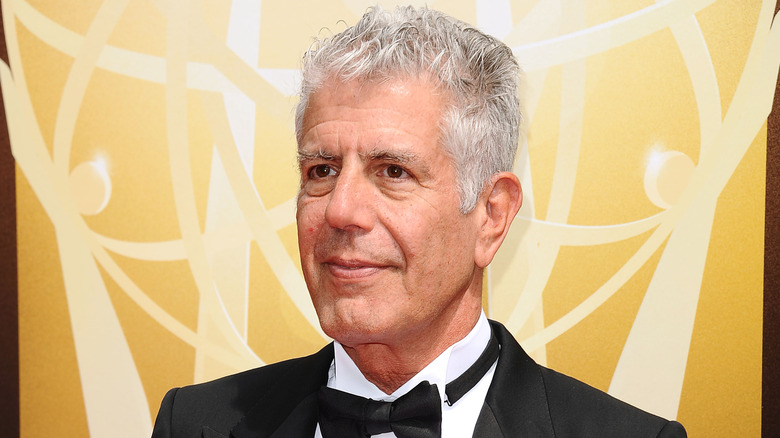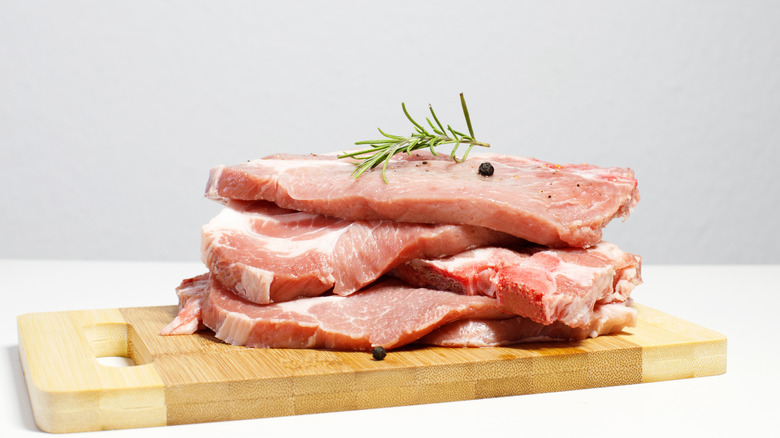Why Anthony Bourdain Would Encourage Us To Order Pork When Dining Out
Anthony Bourdain was much more than an acclaimed chef and TV host — he was also a celebrated author whose candid opinions and insights into the inner world of restaurants helped shape dining culture as we know it. Before "No Reservations" and "Parts Unknown" solidified Bourdain's reputation as a connoisseur of eating abroad, and even before his best-selling book "Kitchen Confidential" skyrocketed his media presence, Bourdain penned a 1999 essay in The New Yorker that established him as a blunt, tell-it-like-it-is source of coveted industry knowledge.
One significant nugget of insider info that he revealed in the essay regarded his and (supposedly) other chefs' preference for cooking pork over chicken. Though billions of people around the world don't eat pork, Bourdain wrote, "Like most other chefs I know, I'm amused when I hear people object to pork on nonreligious grounds." There has long been a stigma that pigs are dirty due to their alleged poor diets and unsanitary habits. According to Bourdain, however, poultry is the real meat to steer clear of. "Chicken — America's favorite food — goes bad quickly; handled carelessly, it infects other foods with salmonella; and it bores the hell out of chefs," he wrote.
In Bourdain's words, "Pork, on the other hand, is cool." Besides supposedly being more sanitary than poultry, Bourdain claimed that pork was more versatile to cook with and thus exciting for chefs, whereas "chicken always tastes like chicken." When it came to ordering at a nice restaurant, Bourdain advised people to pick pork every time.
Are Bourdain's food safety claims correct?
Anthony Bourdain was intent on dispelling any myths about pork's uncleanliness. In his 1999 essay, he wrote, "Farmers stopped feeding garbage to pigs decades ago, and even if you eat pork rare you're more likely to win the Lotto than to contract trichinosis." Bourdain made plenty of bold assertions in his writing, such as claiming that restaurants secretly recycle the uneaten bread in complimentary bread baskets, but just how accurate was his stance on pork's safety?
At least when it comes to trichinosis, one of the most feared infections formerly associated with pork consumption, the statistics back up Bourdain's argument. Though well-done pork chops were previously the standard due to fears about trichinella pathogens, as of September 2024, the CDC states that there are only about 15 cases of trichinellosis in the United States per year. Furthermore, most of these result from eating wild game, like wild boar and bear meat, as the New York Department of Health advised that the parasite is no longer found in domestic pigs raised commercially in confinement.
Considering that millions of people win at least a small pot of lottery money every year, Bourdain's claim is indeed well-founded. Because trichinella is no longer a major concern, in 2011, the USDA lowered their recommended pork cooking temperature from 160 degrees Fahrenheit to 145 degrees, putting the meat firmly in the "medium" temperature category. It is not recommended to eat pork rare, as it could still contain other harmful bacteria and parasites, such as E. coli. Of course, you shouldn't eat chicken served rare for the same reasons.

